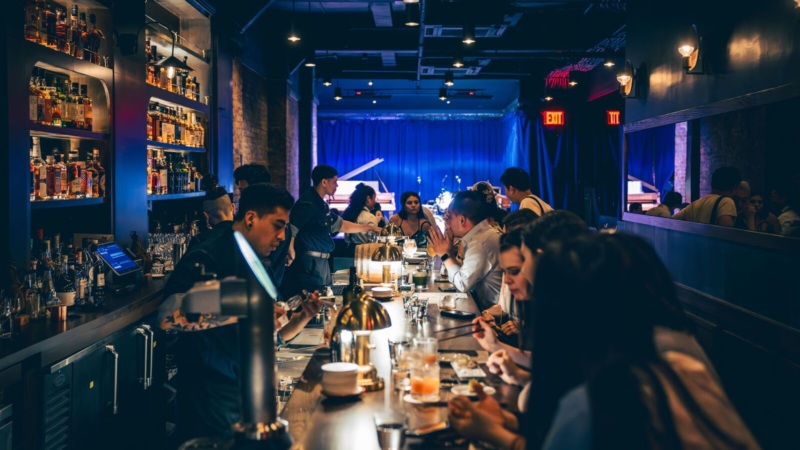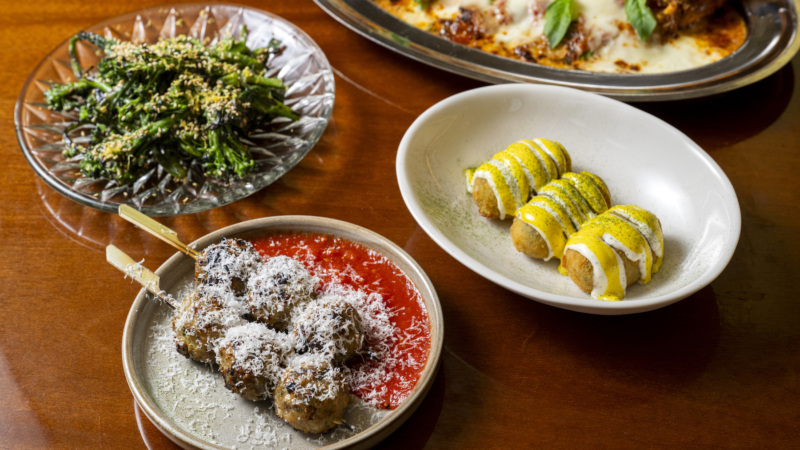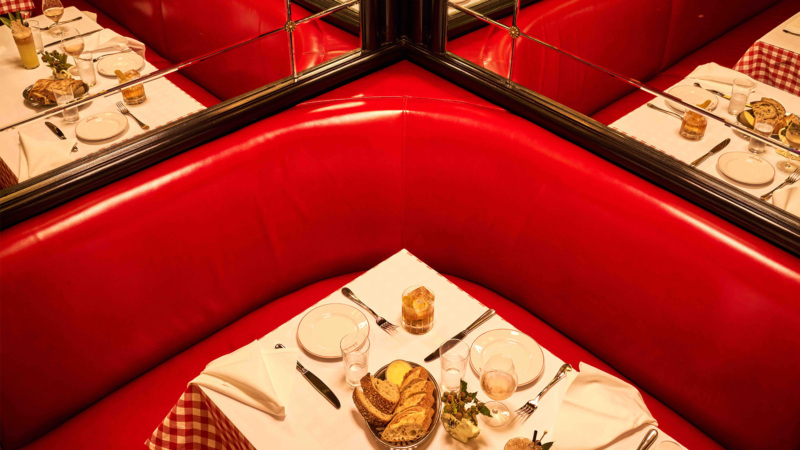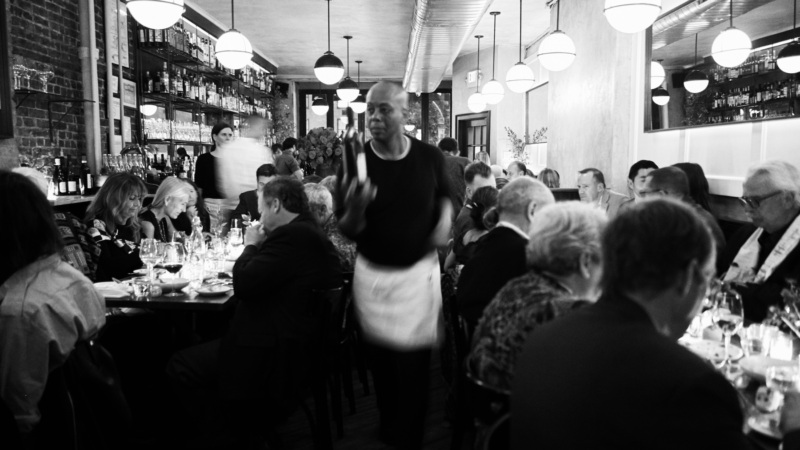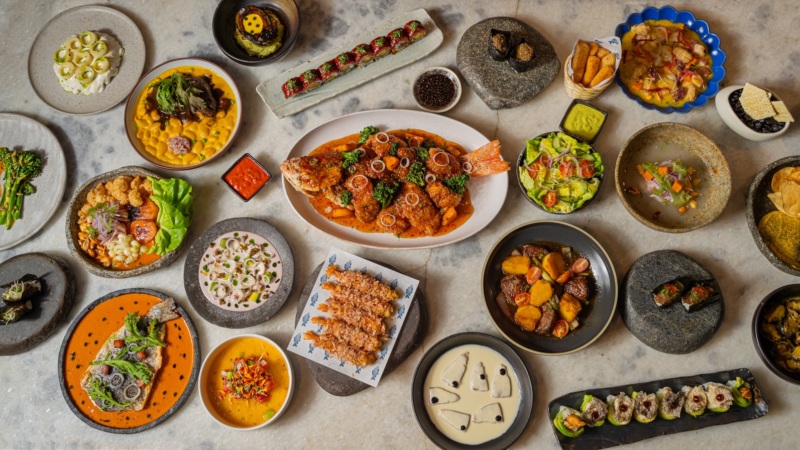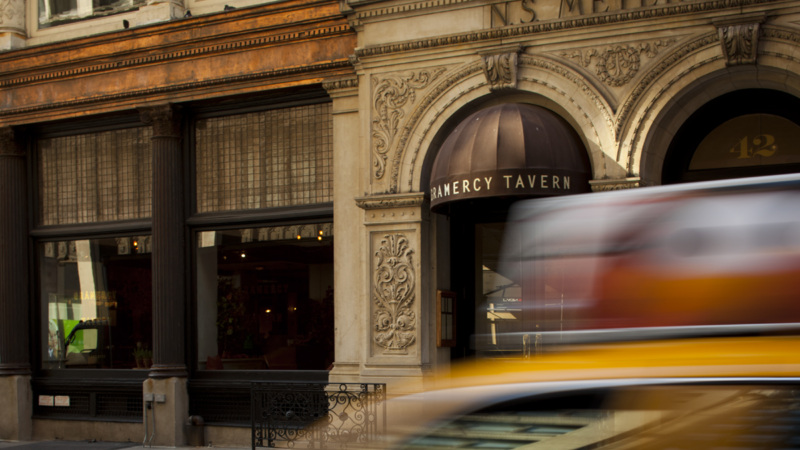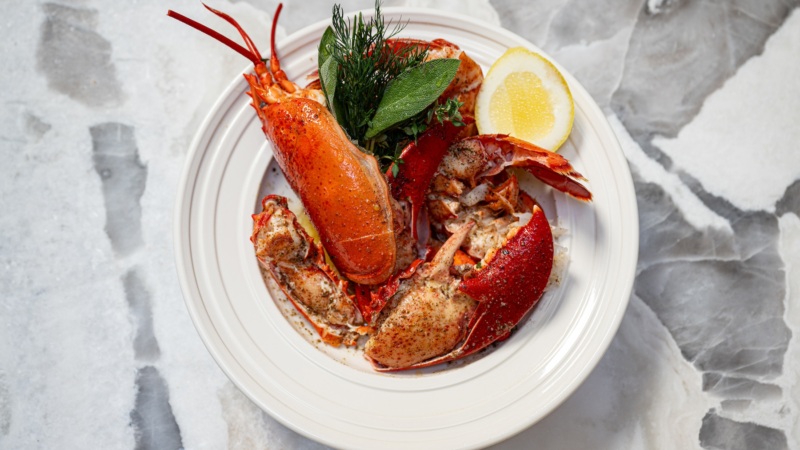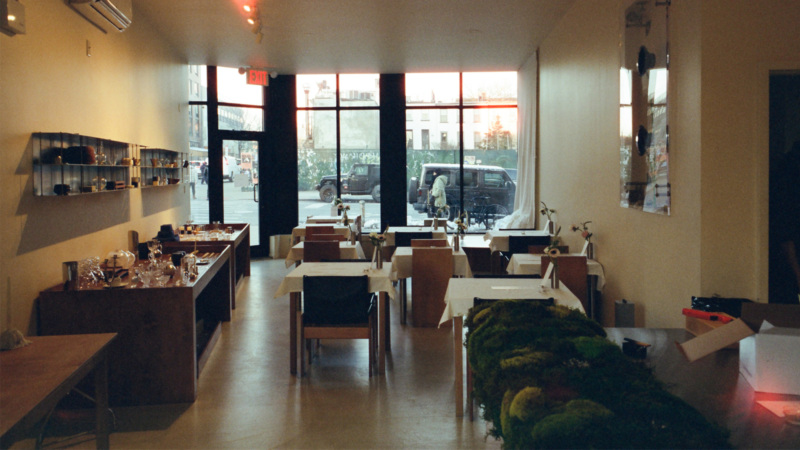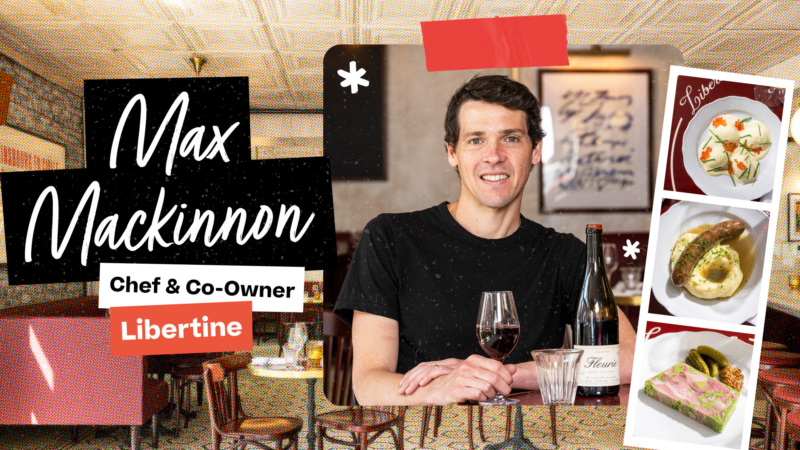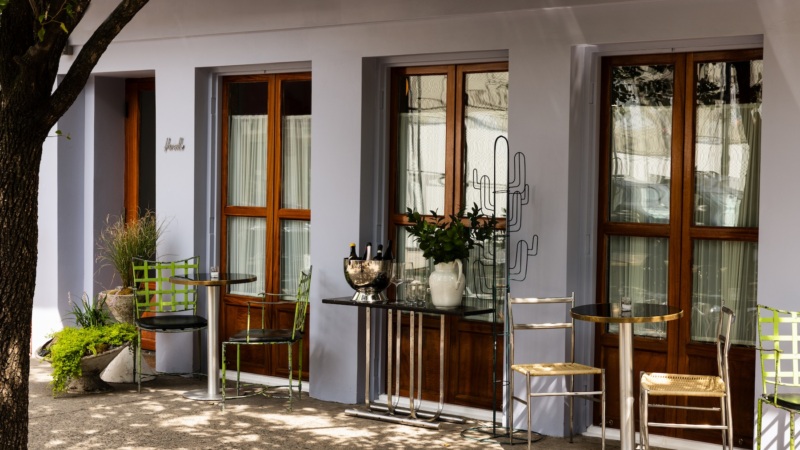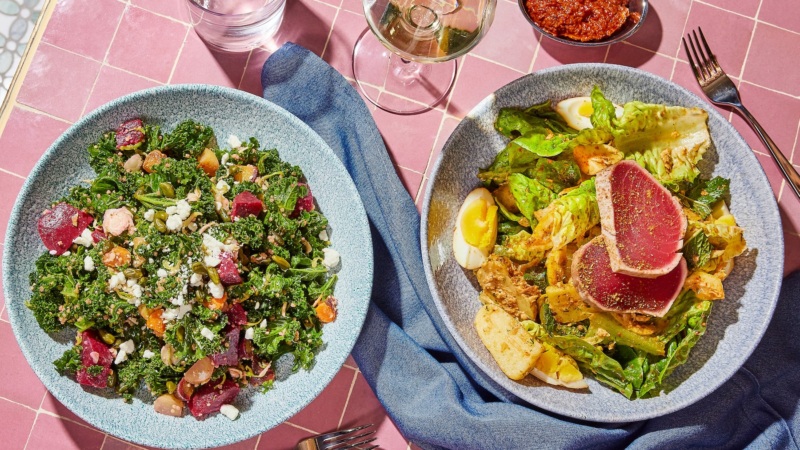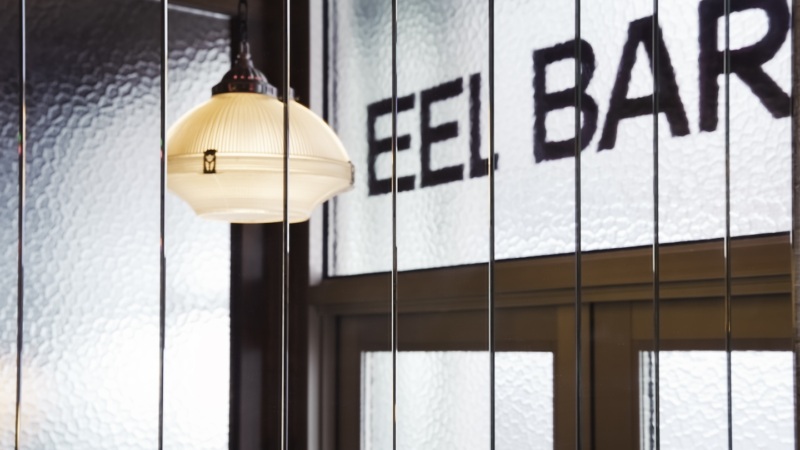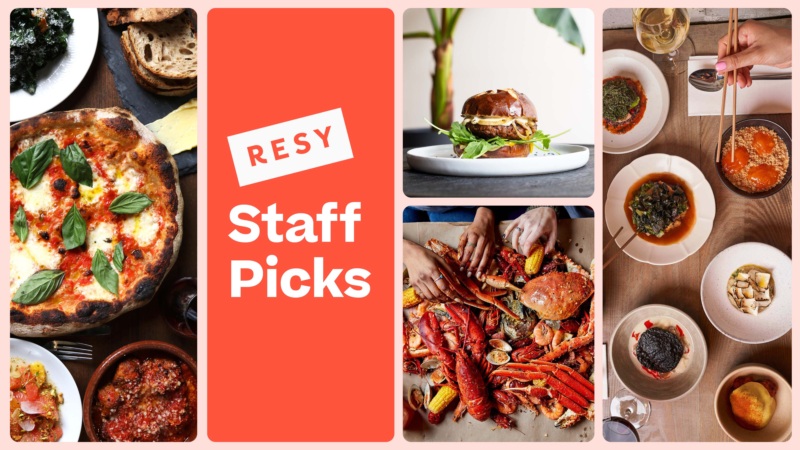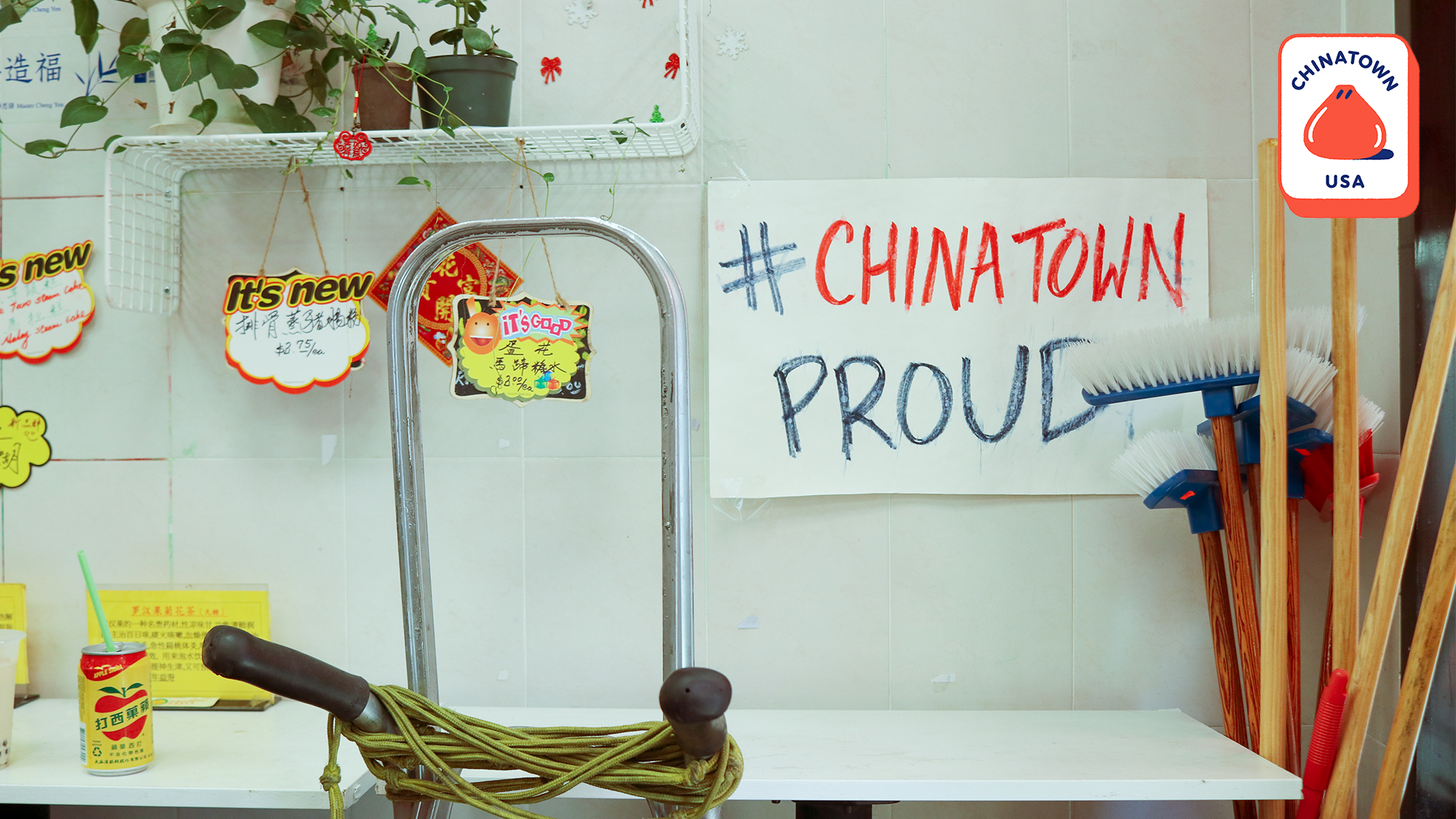
46 Mott’s Patrick Mock Just Wants to Keep Chinatown Alive
Patrick Mock spends most of his days doing everything he can to keep alive 46 Mott, his Cantonese-style bakery. The coronavirus pandemic has plunged the Manhattan Chinatown shop’s business by as much as 70% this year, and Mock’s business was no different.
Even so, 46 Mott had quickly established itself a neighborhood staple, a nondescript shop situated on a stretch of one of Chinatown’s busiest streets. For more than 80 years, that space was occupied by Fong On, a family-run tofu business. That shop closed in 2017, and the Eng family now operates Fong On in a shop located on Division Street. The 46 Mott as we know it today got its start in 2018, selling tofu puddings, rice cakes, and herbal teas. The menu changes daily, and sometimes offers as many as nearly 50 different items.
As its general manager, Mock has dealt with what many business owners have had to deal with this year — namely survival — but he’s also had to contend with the added pressures of balancing the old and new. Keeping traditions and adding new ones. Making sure that the neighborhood he grew up in doesn’t fade away all together.
“I’m a local kid,” Mock says. “I’ve lived in Chinatown for my entire life. I’ve seen it change so much over the years. I can’t bear to see it go away or disappear. It’s the first place my parents came to as immigrants from Brazil.”
Mock also has been vocal about the city needing to do more to help Chinatown businesses that have suffered because of the pandemic — and recently made headlines when Mayor Bill de Blasio visibly ignored Mock’s direct in-person plea. The mayor was in Chinatown to encourage people to visit the neighborhood. But when Mock addressed the mayor, saying, “We’re all hurting. We need more confidence,” de Blasio turned his back.
We recently spoke with him about the past few months, and what he sees as the path forward for shops like his.
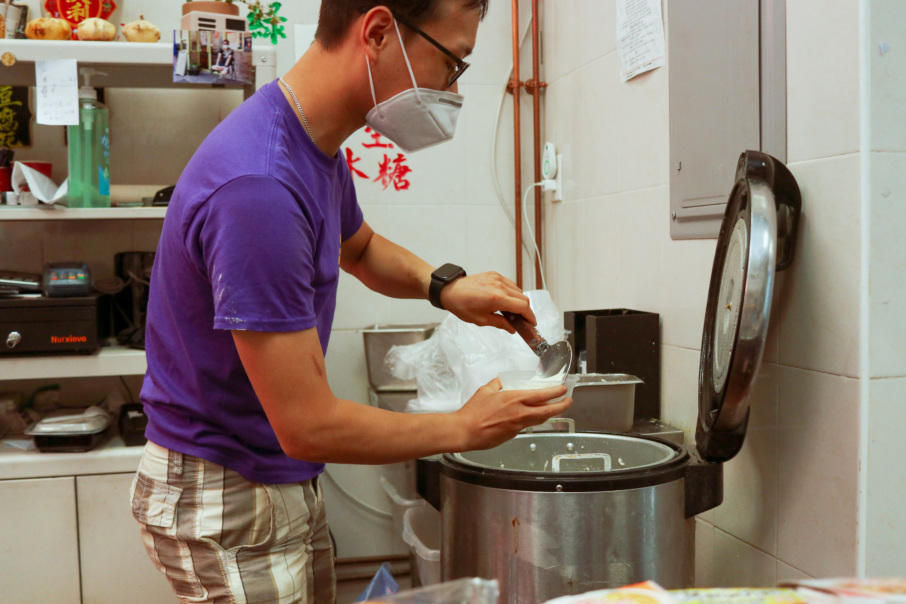
*****
Resy: How did you get started working at 46 Mott?
Mock: Tony [Chen], the chef and owner of 46 Mott, asked me to come work with him two years ago and I said yes because I thought it’d be this cool nostalgia project for me.
I grew up eating all this stuff that we have here. I knew keeping this stuff alive would be a lot of work. It’s not Instagram friendly. It’s the old-school nostalgia I grew up with — tofu puddings, rice cakes, sticky rice, pork buns, herbal teas, and grass jellies.
He knew I had this old-school mind, but also this new-school mentality, too, from the marketing and branding work I’d done for Joy Luck Palace, a dim sum restaurant that closed in 2018.
So when I got to 46 Mott, I started adding new items like fried fish skins and tea eggs. I started getting to know who my customers are, and making sure our food was premium and priced competitively enough.
Bridging the old and new, that’s what’s helped us get to where we are now. I hope that helps get us through the pandemic, too.
What was business like before the pandemic?
Our business was picking up, especially from wholesalers and from other restaurants. We had a lot more foot traffic, and tourism played a big part. Business was good enough that I could hire enough people to run the store without me being here 16 to 17 hours a day.
When did things start to change?
In January, we started seeing that first drop, and then it got even worse in February, right after the Lunar New Year. January and February are supposed to be our busiest months of the year, but they weren’t at all; business was down 60 to 70%. And then, in March, was the shutdown.
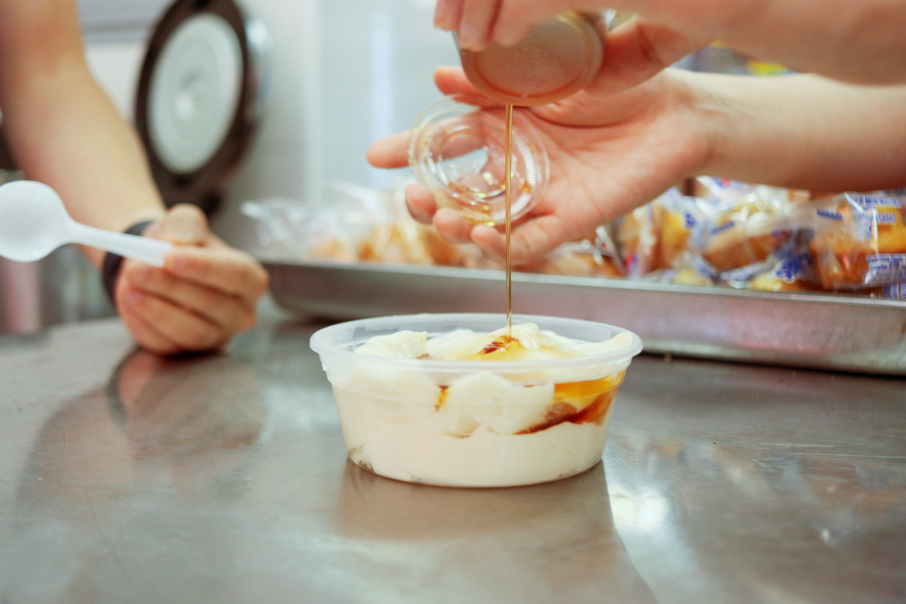
Why did you decide to stay open?
Already, we were behind on rent and bills. Tony and I talked about whether we should stay open and take the bet, or if we should close and just be done. That’s how bad a shape we were in. After two days, we decided, let’s take the bet. Let’s stay open and see what happens. We had nothing to lose.
So we stayed open. We did takeout and offered grab-and-go items. We were one of five eateries still open in Chinatown during the pause.
Did you have to lay off any staff?
Luckily, we didn’t lay off anyone, but our staff was really scared to come back; they’re older and they’re in the high-risk zone, and they were scared to be on the subways. Two of them are back here with us now — Sid, our jack of all trades, and Keung Gor, our dim sum chef — so we have a team of four instead of just two like we did during the pause.
What prompted you to start donating meals?
During the pause, I started noticing the same customers buying the same Cup Noodles or just sticky rice, exclusively, day after day. You could observe how they were eating it and then even after they finished the ramen, they’d drink up every last drop of soup.
It got me thinking. You can’t have a Cup Noodles diet everyday. They were spending a dollar every day to buy that one Cup Noodles. They have been supporting me every day, even when they are without work or without a home, or they have low fixed incomes.
I knew I needed to give back. I grew up in this neighborhood. So, we started donating meals. We worked with this nonprofit, called Send Chinatown Love, and they helped us raise $15,000 in three days for our meal donations.
At one point, we were donating up to 350 to 450 meals a day, to Mount Sinai Beth Israel night shift workers, to locals in need who’ve been displaced, to the elderly, and to low-income families who qualify for Section 8. We’re still donating about 100 meals a day, mostly for those in need in the local area.
What are things like now?
More Chinatown restaurants have reopened now. But business is still very slow. We’re down 50 to 60% from the same time last year.
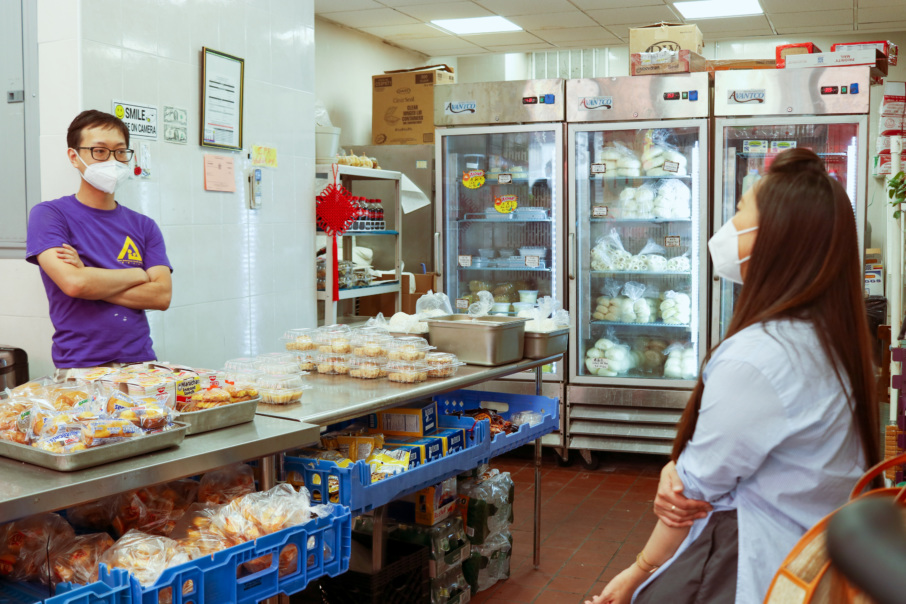
What keeps you working in restaurants? What keeps you going?
Working in restaurants was one of those things I didn’t choose; I just kind of got thrown into it. I’d always loved food, but never thought I’d wind up working in restaurants as a career.
But it’s the people you meet and the people you interact with who keep me in it. It’s the people you service. The experiences you create for people coming in, big or small. It’s that interaction that still keeps me going, even with everything that’s happened this year.
What does Chinatown mean to you, personally, as someone who grew up here?
Chinatown is a hub. You can’t let a hub die. If you look in any tourism brochure about New York, I’m sure you’ll see Chinatown in it. It has so much history. It’s the culture. It’s this backdrop for so many movies and TV shows. Chinatown has given so much to so many.
What will keep Chinatown alive?
We really need and appreciate the support. Every little bit counts right now. For us to get through this, we have to work together. It’s neighbors helping neighbors. It’s the community helping the community.
If anything, the pandemic showed me that it doesn’t take much: A simple act of kindness creates endless ripples.
And what does 46 Mott need to survive?
For places like 46 Mott to survive, we need to evolve, but we can’t lose sight of where we came from, either. We can’t do everything the old-school way. We’ve gotta build a website. We need a way to do deliveries for catering and wholesale. We have to make sure we carry all the old favorites, but that we also need to offer something new.
Working together as a neighborhood is going to help us survive. There are these other two stores near me, one is really popular for its roast pork buns and the other one has really good haupia (coconut pudding). Our customers love to come to all three of us. I know my business is good when theirs is, too. For Chinatown to be Chinatown, and to have this same story and nostalgia, we still need to work together.
Read more about how Mott Street recrafted itself for outdoor dining — including our dining guide to can’t-miss spots.
*****
Deanna Ting is a Resy staff writer. Follow her on Instagram and Twitter. Follow @Resy, too.
- Chinatown Is Our Town
- The Resy Guide to Manhattan Chinatown, By Those Who Love It Best
- It’s Time to Support Chinatown Restaurants. Assemblywoman Yuh-Line Niou Is Even Willing to Share Her Secret List.
- One Family’s Story, From Toisan to Wichita
- The Wonder of Chinese American Food, In Five Dishes
- More Stories
Discover More
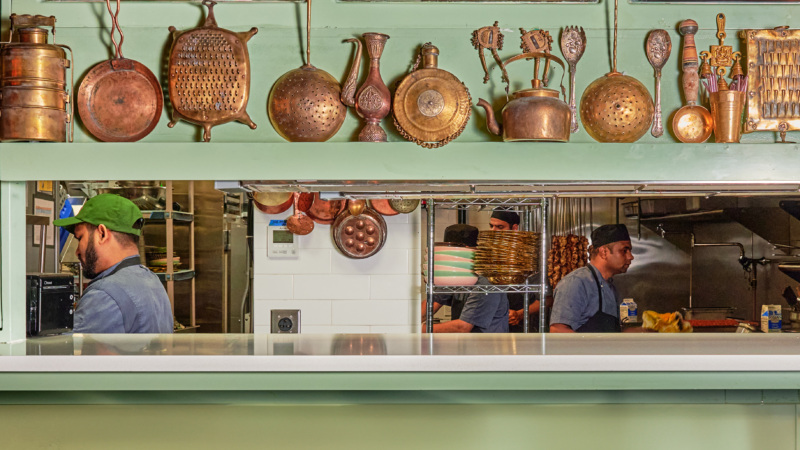
Stephen Satterfield's Corner Table

